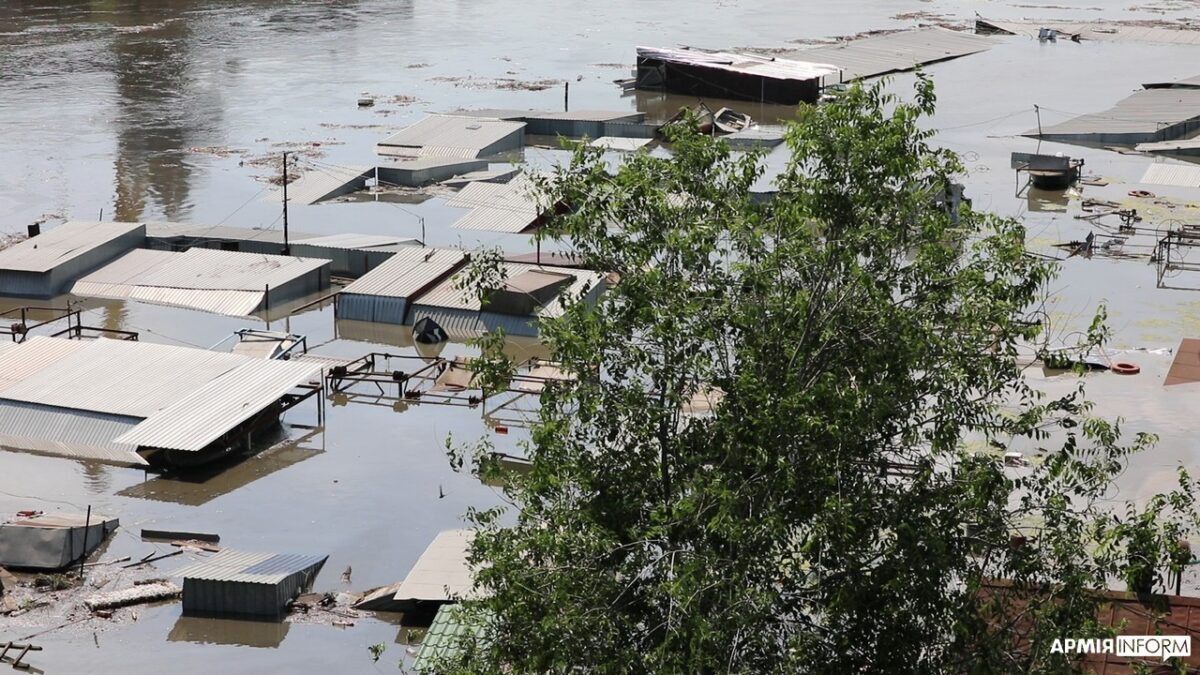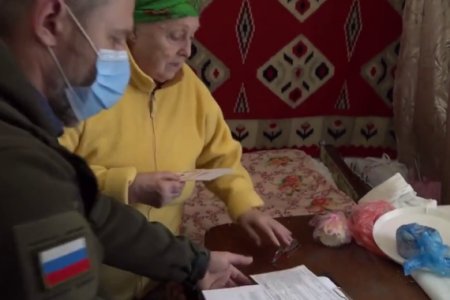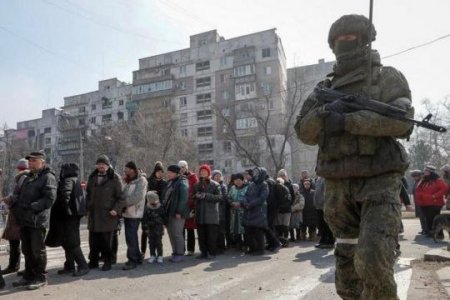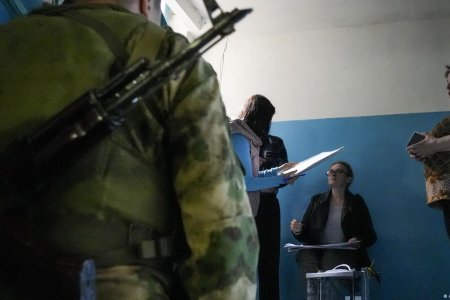
A resident of occupied Hornostaivka in Kherson oblast has died after the Russian occupation ‘authorities’ refused him healthcare because he had not taken Russian citizenship. The real death toll from the aggressor state’s “Russian passport or your life” tactics is almost certainly much higher. Even after the Russians belatedly tried to rescue residents of occupied parts of Kherson oblast flooded after Russia’s destruction of the Kakhovka Dam, volunteers reported that they had refused to save at least 14 people because they did not have Russian passports.
Russia has persistently refused to guarantee the safety of international monitors, so it is impossible at present to independently verify such information. The Centre for Journalist Investigations [CJI] has spoken with residents of Hornostaivka, an urban-type settlement in Kherson oblast and the greater Hornostaivka Teritorial Hromada. According to their sources (who would be in danger from the occupying regime if named), the invaders have, for around a month now, been refusing to provide medical services to any inhabitants without Russian citizenship. After the clinic in Hornostaivka was closed in October 2022 and the medical equipment moved to Chervona Polyana, Hornostaivka residents were forced to search for doctors in occupied parts of Henichesk raion. This, however, is in vain if they cannot produce Russian documents. Residents told CJI that the man who died was between 63 and 65 and would probably still be alive had the Ukrainian living on Ukrainian territory not been refused healthcare because he had not taken the citizenship of the invading power.
Residents of the Hromada also report that the Russians are marking the homes or buildings of people forced to flee the invading army and are effectively plundering their businesses. A number of shops, for example, which closed after their owners left the area have been reopened, or simply stolen, by unidentified individuals.
It became clear in early June that Russia was using healthcare as one of its weapons to foist Russian citizenship on Ukrainians from occupied parts of both Kherson and Zaporizhzhia oblast.
In occupied parts of Zaporizhzhia oblast, for example, people were told that, if they refused to take Russian citizenship, they would, from 1 June 2023, be prevented from receiving free medication. Medicines in areas under Russian occupation are already many times higher than in government-controlled Ukraine, so the choice was stark – take the citizenship of the invading state or risk losing access to possibly vital medication. The Plodorodne Hromada [Melitopol raion] occupation authorities’ informed residents that those with chronic illnesses would only receive potentially life-saving medication if they could provide a copy of a Russian passport and of their Russian social insurance number [SNILS].
Ivan Fedorov, the real Mayor of occupied Melitopol [Zaporizhzhia oblast] explained that the invaders were trying to force residents to take on Russian citizenship by 1 September, in time for the Russian ‘parliamentary elections’ which Moscow is planning to illegally hold on occupied territory. They are forced to resort to methods of coercion, including by putting people’s lives in danger by blocking their access to medical care.
Other methods include threatening to treat Ukrainians living in their own homes as ‘foreigners’ and deporting them. There have also been reports that parents are threatened with having their children taken away and placed in children’s homes if the parents do not enrol them in Russian-controlled ‘schools’. The invaders then make such enrolment impossible if the parents do not have Russian citizenship.



